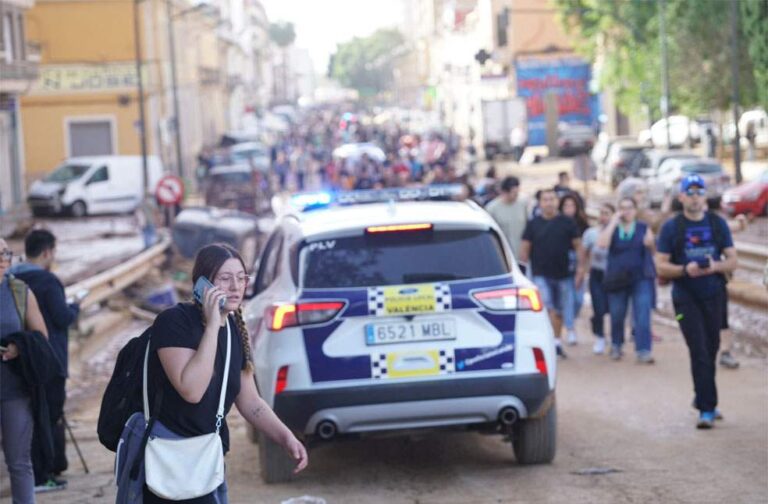Valencia, Spain: Amid the shock and trauma in Valencia, solidarity continues to grow each day, as residents come together to support one another in the wake of the devastating floods.
At the City of Arts and Sciences centre, large numbers of volunteers lined up to collect supplies—buckets, mops, food, and water—before boarding buses headed to the areas hardest hit by the catastrophic floods that overwhelmed the region earlier this week, claiming over 200 lives, with many still unaccounted for.
Organizers estimate that 15,000 people participated in the first coordinated clean-up effort this morning, filling what many see as a void left by local authorities.
Anger is prevalent in Valencia and the surrounding areas, where most of the 211 fatalities occurred, and the death toll is expected to rise. Heavy rainfall led to extensive flooding, destroying bridges, isolating communities, and leaving them without water, food, or electricity.
Thousands of security and emergency personnel are working tirelessly to clear debris and mud in their search for victims, which the Spanish government has called the second deadliest flood in Europe.

The Valencian government reported that looting is increasing insecurity in the region, and warned that those responsible will face justice.
In a televised address, Spanish Prime Minister Pedro Sanchez announced the deployment of additional security forces to assist with relief efforts. He stated that 5,000 more troops will join the 2,500 already on the ground, marking the largest peacetime military operation in Spain’s history. An additional 5,000 police officers and civil guards will also be deployed.
The government noted that 4,800 rescues have been conducted and 30,000 individuals have received assistance. However, authorities are facing criticism regarding the effectiveness of their warning systems prior to the flooding.
As Valencia grapples with the aftermath of this disaster, the community’s resilience and the call for accountability from authorities highlight the urgent need for improved disaster preparedness and response systems to prevent such tragedies in the future.



